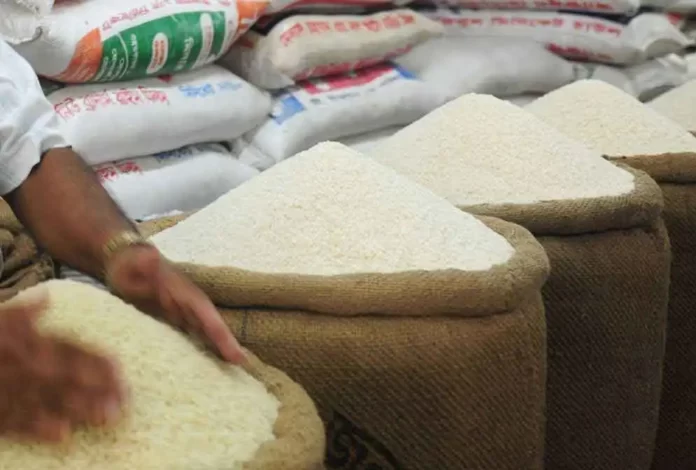- Cheaper Indian rice floods international markets, with both non-Basmati and Basmati varieties available at lower prices
ISLAMABAD: Pakistan’s rice sector began the new fiscal year on a mixed note, with overall exports showing a modest increase in July 2025, while Basmati rice, the country’s premium grain, recorded a sharp decline.
Official trade data shows that Pakistan exported 291,902 tons of rice in July 2025, up 21,900 tons from 270,002 tons in the same month last year. This growth was driven entirely by non-Basmati rice, which rose by 60,930 tons to 239,562 tons. In contrast, Basmati rice exports fell 43%, dropping to 52,339 tons from 92,541 tons a year earlier.
The steep decline has alarmed exporters and policymakers due to Basmati’s role in foreign exchange earnings and its value in global branding. Industry sources noted that brown rice exports declined sharply in the UK and EU, while white and parboiled Basmati fell in Middle Eastern markets, particularly Oman and Saudi Arabia, which are traditionally strong buyers of Pakistani rice.
Exporters warn that Pakistan faces mounting challenges in the ongoing fiscal year. Cheaper Indian rice has flooded international markets, with both non-Basmati and Basmati varieties available at lower prices. The recent 2.5 percent fall in the Indian rupee has further strengthened India’s competitiveness, while the appreciation of the Pakistani rupee is eroding local export margins.
Additional pressures stem from regulatory bottlenecks. Exporters have cited undue restrictions and delayed inspections by the Department of Plant Protection (DPP) and the National Agri Trade and Food Safety Authority (NAFSA), leading to shipment delays, order cancellations, and loss of confidence among foreign buyers.
Non-Basmati rice has recorded strong demand in regional markets, offering some relief. However, exporters caution that sustained growth may be threatened if India continues to undercut prices. They stress the need for urgent reforms in policy and export facilitation, as well as enhanced marketing and branding of Basmati rice, to maintain Pakistan’s premium position.
“Without decisive action, Pakistan risks losing Basmati’s premium position in global markets,” one exporter warned, noting that even long-standing buyers are shifting to cheaper alternatives.
Earlier investigative reports highlighted how inefficiencies, corruption, and red tape in DPP and NAFSA have already affected Pakistan’s agricultural exports, including mangoes and rice. The steep Basmati slump in July 2025 underscores the urgency for comprehensive reforms in the country’s export sector.





How to compete with India? What is strategy? Rice is the main cash crop.